Welcome
These slides available at: https://arcus.github.io/demystifying_r_rstudio_skills_series/session_2.html
- Use keyboard arrow keys to
- advance ( → ) and
- go back ( ← )
- Type “s” to see speaker notes
- Type “?” to see other keyboard shortcuts
About Arcus / Your Presenter
Arcus is an initiative by the Research Institute aimed at promoting data discovery and reuse and increasing research reproducibility.
- Arcus app: https://arcus.chop.edu
- Arcus Sharepoint site: https://chop365.sharepoint.com/sites/Arcus
Among the many teams in Arcus, I represent Arcus Education!
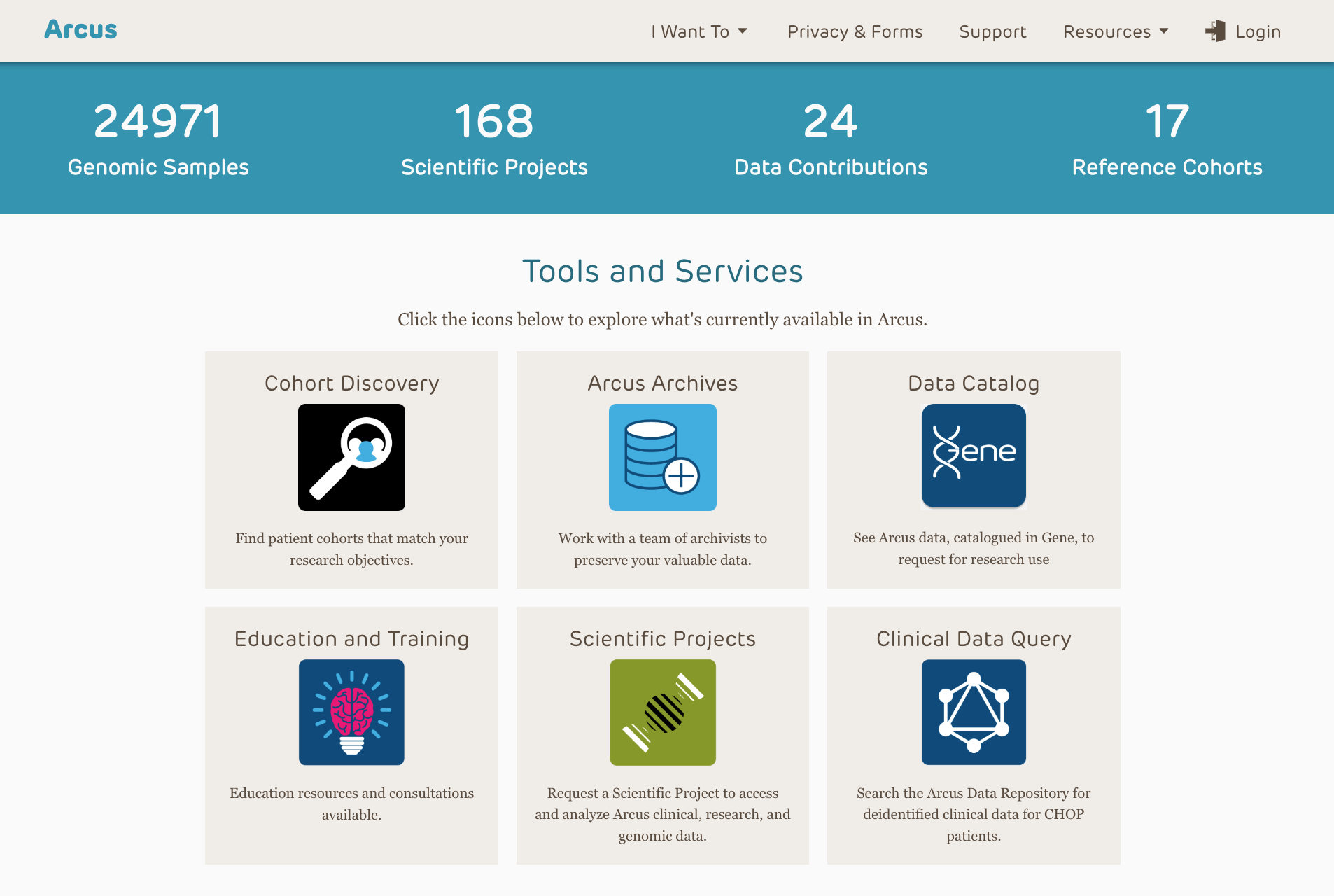
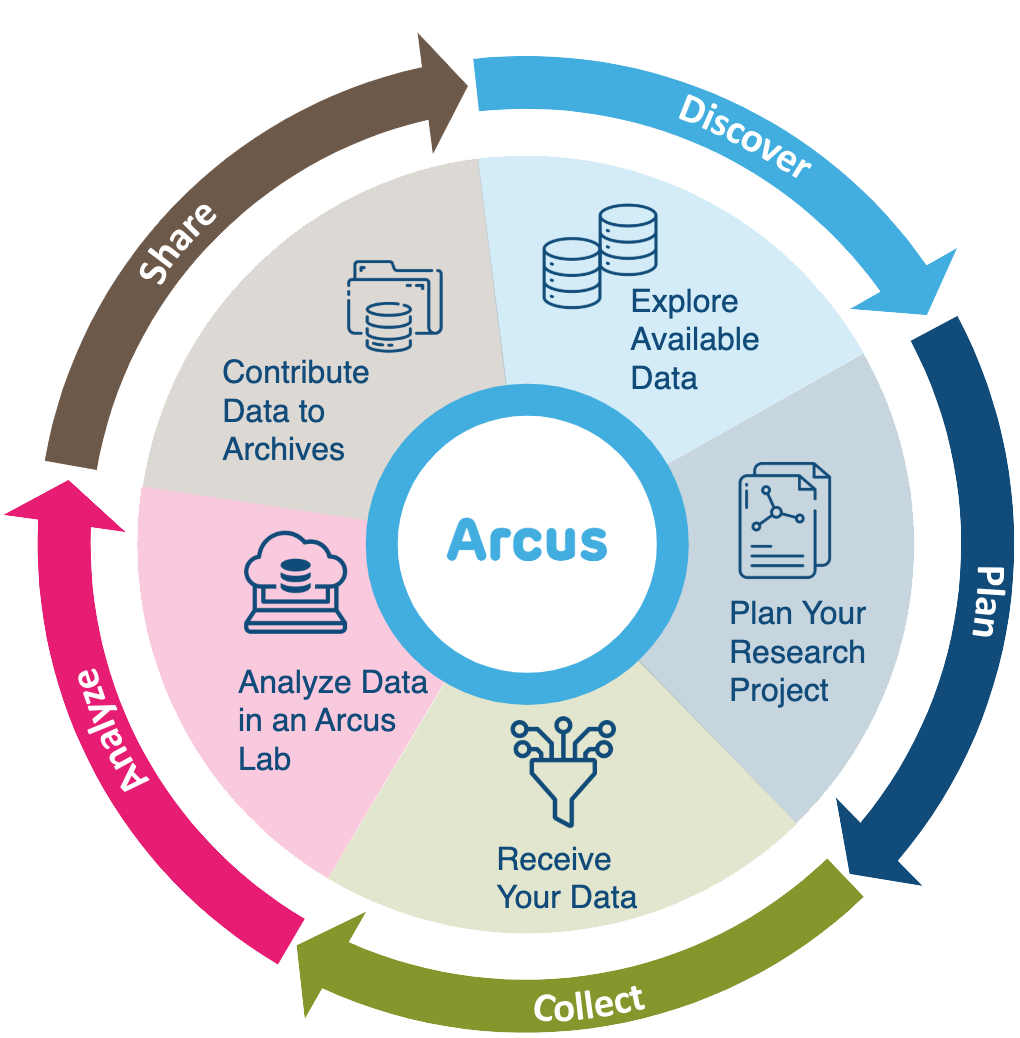
Arcus Education
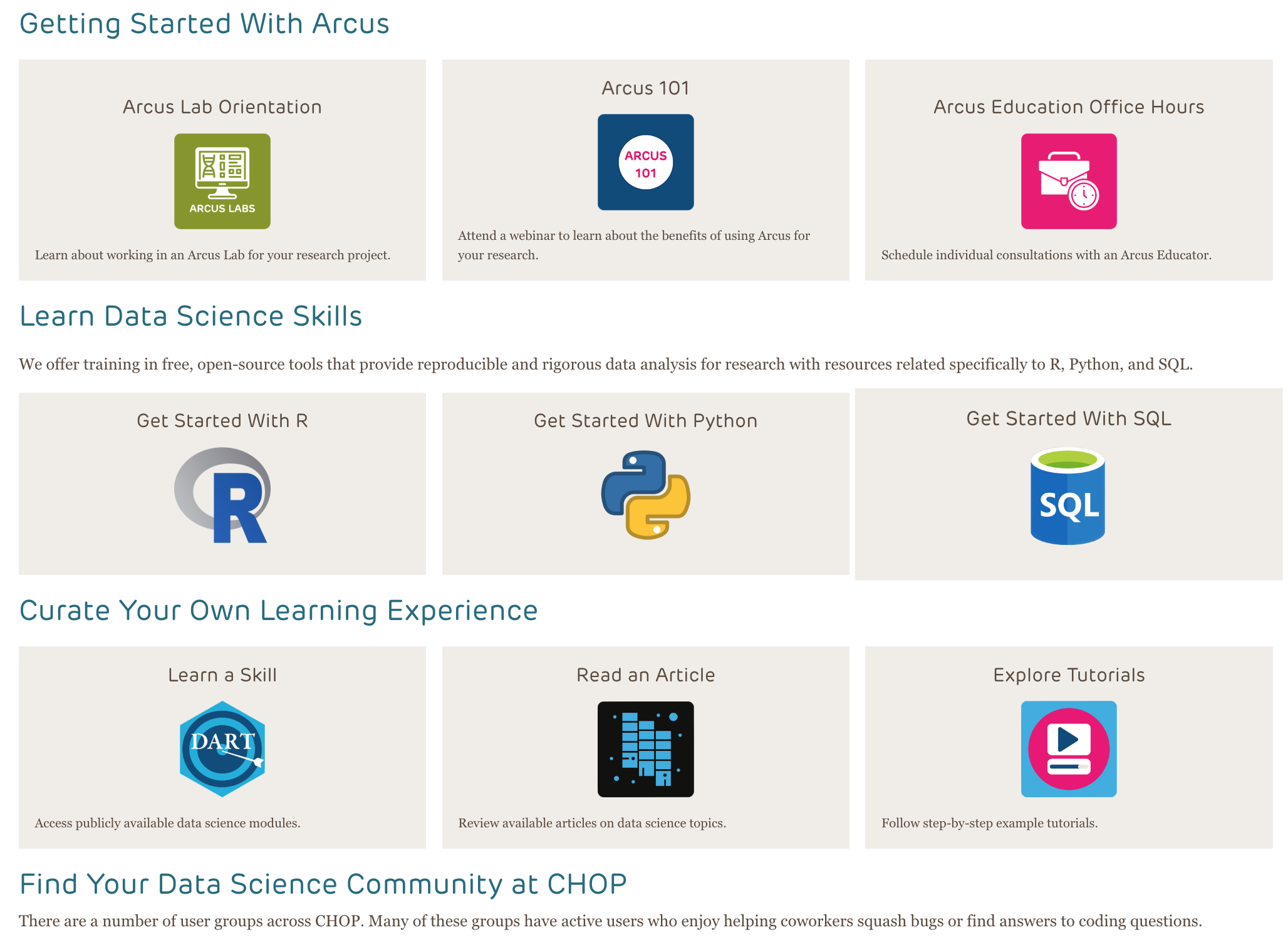
Arcus education provides data science training to researchers …
(and often this is useful to non-researchers too!).
https://arcus.chop.edu/i-want-to/arcus-education
Email us! arcus-education@chop.edu
Demystifying R and RStudio
Arcus Education provides “Skills Series” for the entire CHOP community.
This Skills Series is a short, 2-session series aimed at Demystifying R and RStudio!
- Session 1: Introduction to R/RStudio
- Session 2: Introduction to Literate Statistical Programming
Session 2 Itinerary
Literate Statistical Programmi
- Review of R and RStudio
- Literate programming is a programming paradigm
- Research reproducibility reminders
- Quarto documents
- Next steps
Goals:
- Describe what makes programming “literate”
- Explain the real-life consequence of irreproducible research
- Name one way Quarto documents can be helpful in data analysis
R Vs RStudio

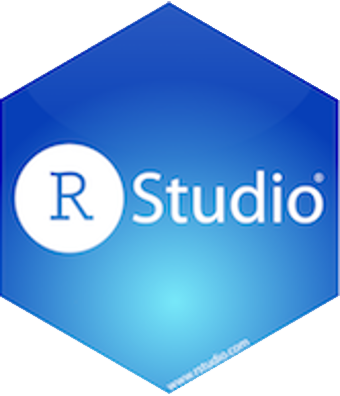
R Programming language for data analysis
RStudio Integrated development environment (IDE)
Literate Statistical Programming
Literate programming – Donald Knuth’s term for programming that is effective not just for computers but for people.
Statistical programming – when you analyze data statistically, using a programming language.
Literate statistical programming – when you create scripts (for example in R) that describe for the computer and for human readers the analysis you’re doing and why and how you’re doing each step.
A Simple Example
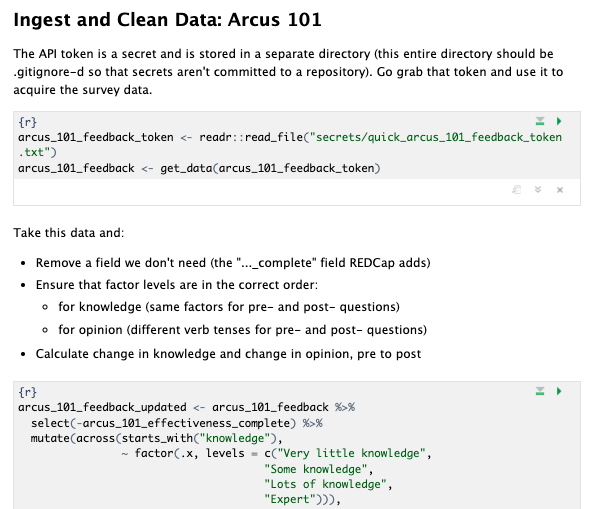
We describe what we do and use headers, bullet points, and other formatting to make it easier for humans to make sense of the code.
The Duke Cancer Scandal
- Chemo sensitivity from microarrays
- Serious errors in data analysis
- Clinical trials based on flawed models
- Papers retracted, lawsuits settled

An Easy Mistake
Duke
"1881_at"
"31321_at"
"31725_s_at"
"32307_r_at"MD Anderson
"1882_g_at"
"31322_at"
"31726_at"
"32308_r_at"Do you see the off-by-one indexing error?
Easy to make mistakes…
Off-by-one indexing error
Sensitive / resistant label reversal
Confounding in experimental design
Inclusion of data from non-reported sources
Wrong figure shown
… add up to huge patient consequences!
Are You a “Team of One” ?
- Can I redo the analysis with this month’s data?
- Why do the data in Table 1 not seem to agree with Figure 2?
- Why did I decide to omit these six samples from my analysis?
Your closest collaborator is you from 6 months ago…
Introducing Quarto
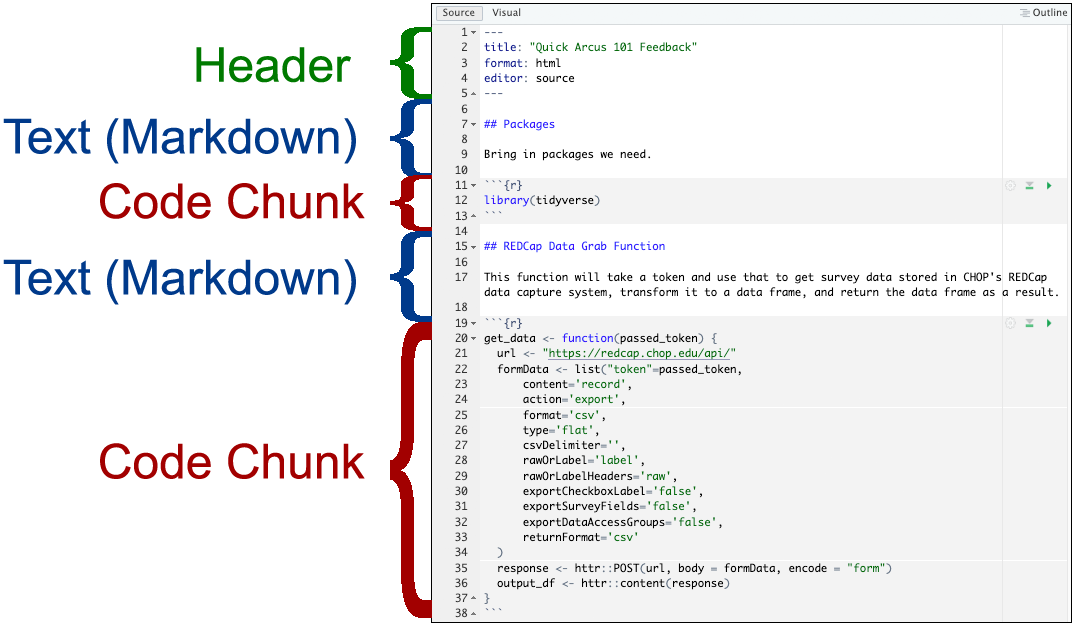
Output Formats
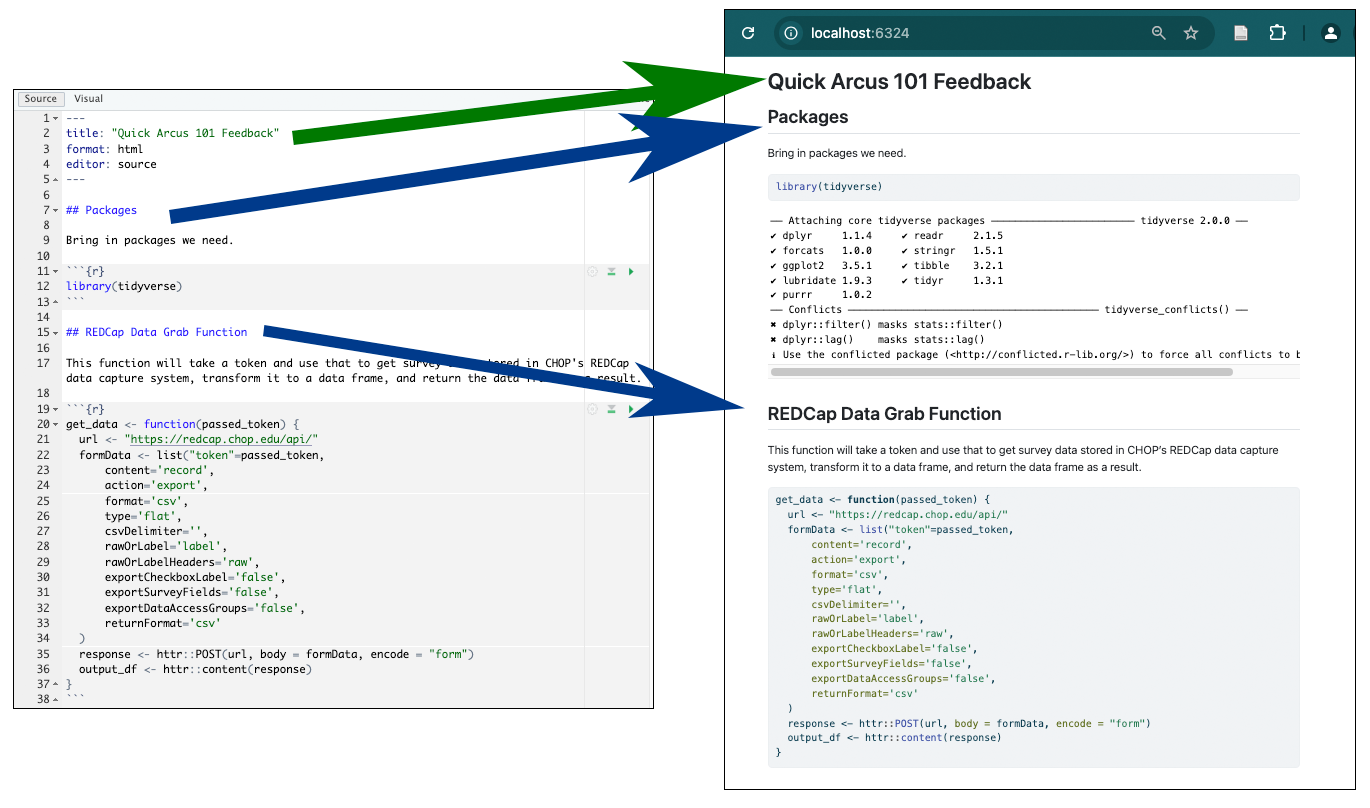
Quarto allows you create documents that interlace:
- Your reasoning about your code
- The code you write
- The output of the code you write
Which helps future-you AND your colleagues!
Ready to Try?
- Get access to R and RStudio!
- Posit.cloud (just for learning, NOT for working in CHOP data)
- Ask to get R and RStudio installed (and consider Git and GitHub, too!)
- Learn a little basic R
- We suggest learning “tidyverse” and working with data frames first
- We very strongly suggest learning within the context of RStudio
- Arcus has some resources (live/synchronous and asynchronous)
- So do lots of other people! Consider how you like to learn.
- Join CHOP’s R User Group
- Pick one task you do manually and try to re-do it in R
- Don’t be afraid to fail (I do!)
Getting Access to R / RStudio
- Slide titled Working with R at CHOP
- Slide titled What to Get Installed
- Slide titled Researchers ONLY at CHOP
- Slide titled Posit.Cloud (be careful!)
First Steps in R and RStudio
Five Mondays at 1 pm, April and First Monday in May:
Session 2: Projects and File Ingestion
Session 3: Exploring Data Visually Using ggplot2
More R at CHOP
- Join the CHOP R User Group
- Check out some asynchronous modules
- We offer periodic sessions: Join the CHOP R User Group or keep your eyes on the Arcus Sharepoint page to be the first to find out the dates!
Q&A / Was This Effective?
As you can tell from our data analysis, we like to measure our effectiveness.
Goals:
- Describe what makes programming “literate”
- Explain the real-life consequence of irreproducible research
- Name one way Quarto documents can be helpful in data analysis
Homework
If you want, totally optional additional learning:
| Module | Description | Duration |
|---|---|---|
| Learning to Learn Data Science | Discover how learning data science is different than learning other subjects. | 20 mins |
| Reproducibility, Generalizability, and Reuse | This module provides learners with an approachable introduction to the concepts and impact of research reproducibility…. | 60 min |
| R Basics | Are you brand new to R, and ready to get started? This module teaches concepts and vocabulary related to R, RStudio, and R Markdown…. | 60 min |
Acknowledgements
- R User Group leadership, especially Stephan Kadauke
- Former learners at CHOP, Penn, Drexel, University of Botswana
- DART study participants and pilots around the world
- Ed Himelblau
- You!

Arcus Education, Children’s Hospital of Philadelphia